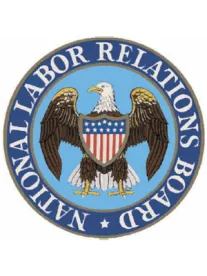Earlier this week, the National Labor Relations Board’s top prosecutor clarified how he views several key issues that arise when unions request information from employers. Board General Counsel Peter Robb confirmed that his office will not require employers to automatically inform unions about the amounts the employers have saved due to the recent federal tax cut. The General Counsel also indicated, once again, that he views the duty to furnish information in a more evenhanded way than his recent predecessors.
The General Counsel issued advice memoranda addressing two situations where unions requested information from employers. In the first situation, when the union and employer were bargaining for a new contract, the union requested the employer to disclose the amount the employer saved due to the recent federal tax cut (the Tax Cuts and Jobs Act). The employer previously had announced that it received a “financial benefit” from the tax cut, and claimed it wanted to pass on some of that benefit to employees. The employer had not, however, claimed it lacked the financial ability to provide pay increases. In the second situation, the union requested information to support a grievance about non-union employees performing union work.
Historically, the Board has made it difficult for employers when unions request information regarding union-represented employees or potential grievances. The Board typically has considered this information to be “presumptively relevant” or “apparently relevant” and required an employer to disclose it unless the employer could establish some affirmative defense (such as confidentiality, undue burden, or actually showing that the information lacked relevance). Moreover, even if the employer could establish such a defense, that would not categorically release the employer from providing the information. Rather, in many cases, the defense simply would permit the employer to bargain in good faith to narrow the request and reach an accommodation.
The General Counsel’s advice memos departed materially from this historical precedent, in several ways that will benefit employers. Employers should note the following three takeaways:
-
Employers do not need to automatically disclose information about tax cut savings. Many unions have followed the same strategy as the union in the first memo, by attempting to use the recent tax cut as a way to obtain wage increases in bargaining. The General Counsel has clarified, however, that his office will not automatically require an employer to disclose its tax savings amounts, even if the employer has previously indicated that it will share its tax cut savings with employees. The General Counsel likely would view this differently if the employer specifically claimed it lacked the ability to provide pay increases. Nevertheless, this shows that if employers strategically articulate their reasoning for financial proposals, they can avoid having to disclose this type of information.
-
The General Counsel lightly modified the applicable test, to require unions to carry a larger burden. According to the General Counsel, even if a union has requested presumptively relevant information, an employer now does not need to actually establish some affirmative defense (such as confidentiality or undue burden) in order to bargain for a narrower accommodation. Rather, the General Counsel slightly shifted the applicable test by simply requiring an employer to argue in good faith that the underlying information lacks relevance (even if the employer cannot establish a true affirmative defense). At that point, according to the General Counsel, the duty shifts back to the union to “engage in the interactive process,” such as by bargaining for an accommodation. Thus, if a union argues in good faith that a union’s request lacks relevance, and the union fails to respond, the employer will not violate the Act.
-
The General Counsel will view information request disputes in a more evenhanded way. These advice memos show that the General Counsel will not automatically err in a union’s favor when determining whether information is actually relevant. The General Counsel noted in both memos that he did not consider the underlying information to be presumptively relevant, even though it concerned bargaining unit employees and potential grievances. Although each case turns on its own facts, the Democrat General Counsels and Board members serving during the Obama administration almost certainly would have considered this information to be presumptively relevant (or to fall within the related “apparently relevant” category). This further shows that the General Counsel will view information request issues in a more balanced manner going forward.




 />i
/>i
